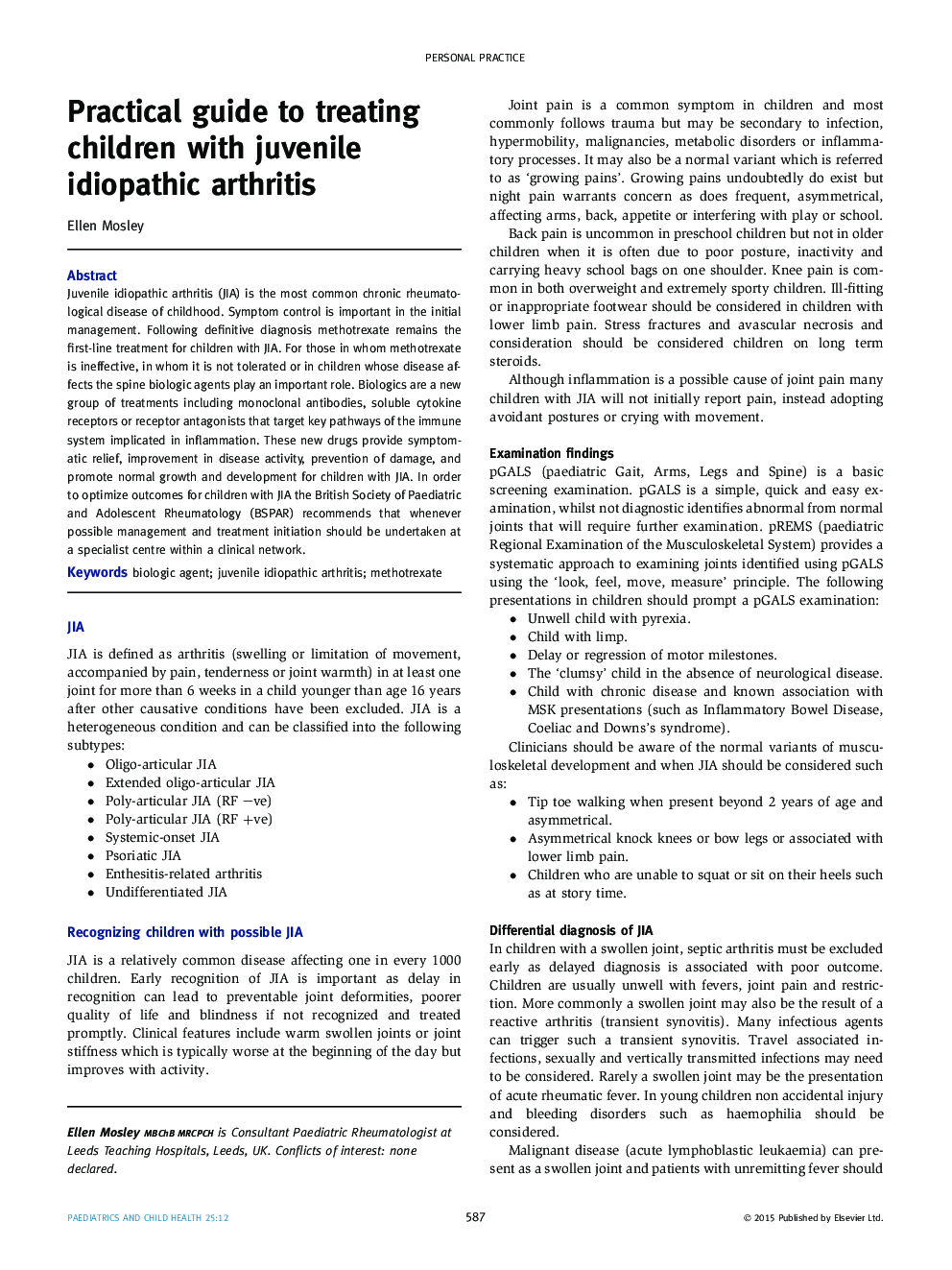| Article ID | Journal | Published Year | Pages | File Type |
|---|---|---|---|---|
| 4172018 | Paediatrics and Child Health | 2015 | 5 Pages |
Juvenile idiopathic arthritis (JIA) is the most common chronic rheumatological disease of childhood. Symptom control is important in the initial management. Following definitive diagnosis methotrexate remains the first-line treatment for children with JIA. For those in whom methotrexate is ineffective, in whom it is not tolerated or in children whose disease affects the spine biologic agents play an important role. Biologics are a new group of treatments including monoclonal antibodies, soluble cytokine receptors or receptor antagonists that target key pathways of the immune system implicated in inflammation. These new drugs provide symptomatic relief, improvement in disease activity, prevention of damage, and promote normal growth and development for children with JIA. In order to optimize outcomes for children with JIA the British Society of Paediatric and Adolescent Rheumatology (BSPAR) recommends that whenever possible management and treatment initiation should be undertaken at a specialist centre within a clinical network.
